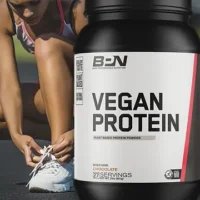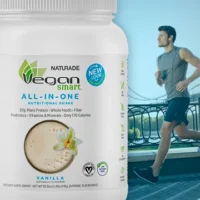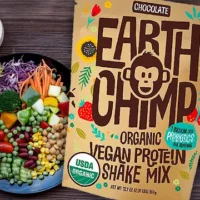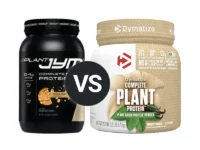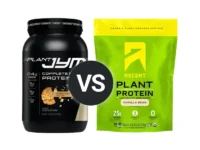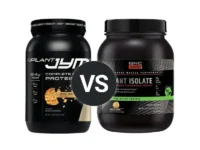Knowledge BaseYou're Questions Answered
Are protein shakes vegan?
Protein shakes can be either vegan or non-vegan, depending on the type of protein powder and additional ingredients used. For a protein shake to be considered vegan, it must be made without any animal-derived products. Below, we explore the differences between vegan and non-vegan protein shakes, the types of protein powders suitable for a vegan diet, and common ingredients to consider when making a vegan protein shake.
Vegan vs. Non-Vegan Protein Shakes
1. Vegan Protein Shakes
Vegan protein shakes are made with plant-based protein powders and do not contain any animal-derived ingredients. Common sources of vegan protein powders include:
- Soy Protein: Derived from soybeans, soy protein is a complete protein containing all nine essential amino acids1.
- Pea Protein: Made from yellow split peas, pea protein is rich in essential amino acids, though it may be slightly low in methionine2.
- Rice Protein: Derived from brown rice, rice protein is often combined with other plant proteins to create a complete amino acid profile3.
- Hemp Protein: Made from hemp seeds, hemp protein provides a good balance of omega-3 and omega-6 fatty acids4.
- Other Plant Proteins: These include protein powders made from chia, flax, quinoa, pumpkin seeds, and more.
2. Non-Vegan Protein Shakes
Non-vegan protein shakes typically contain animal-derived protein powders, such as:
- Whey Protein: A byproduct of cheese production, derived from milk.
- Casein Protein: Another milk-derived protein, known for its slow-digesting properties.
- Egg Protein: Made from egg whites, providing a high-quality protein source.
- Beef Protein: Made from beef, often used in hydrolyzed form.
Ingredients to Consider for Vegan Protein Shakes
1. Plant-Based Milks
Vegan protein shakes typically use plant-based milks as the liquid base. Common options include almond milk, soy milk, oat milk, rice milk, and coconut milk. These milks are free from dairy and often fortified with additional nutrients like calcium and vitamin D.
2. Fruits and Vegetables
Adding fruits and vegetables to vegan protein shakes can enhance flavor, texture, and nutritional content. Common choices include bananas, berries, spinach, kale, and avocado.
3. Healthy Fats
Healthy fats can be added to vegan protein shakes for additional nutrients and satiety. Options include nut butters (almond, peanut, cashew), seeds (chia, flax, hemp), and coconut oil.
4. Sweeteners and Flavorings
Vegan protein shakes can be sweetened and flavored using natural sweeteners like maple syrup, agave nectar, or dates. Additional flavorings like cocoa powder, vanilla extract, and spices can also be used.
- Messina, M., & Messina, V. (2010). The role of soy in vegetarian diets. Nutrients, 2(8), 855-888.
- Hoffman, J. R., & Falvo, M. J. (2004). Protein–which is best? Journal of Sports Science & Medicine, 3(3), 118-130.
- Gorissen, S. H., Crombag, J. J., Senden, J. M., Waterval, W. H., Bierau, J., Verdijk, L. B., & Van Loon, L. J. (2018). Protein content and amino acid composition of commercially available plant-based protein isolates. Amino Acids, 50(12), 1685-1695.
- Callaway, J. C. (2004). Hempseed as a nutritional resource: An overview. Euphytica, 140(1-2), 65-72.
Related Questions
Related Reviews
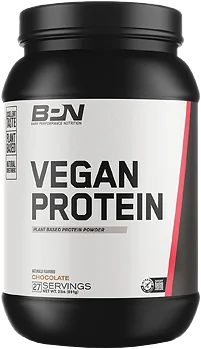
Your Answer
We are a participant in the Amazon Services LLC Associates Program, an affiliate advertising program designed to provide a means for us to earn fees by linking to Amazon.com and affiliated sites.

